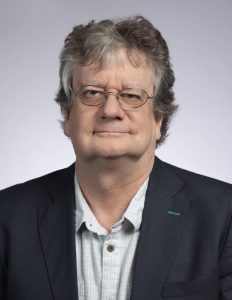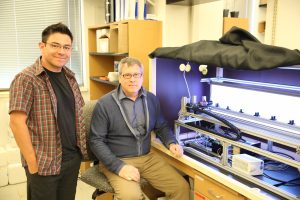For more than 30 years, the University of Missouri System and the University of the Western Cape (UWC) in Cape Town, South Africa, have been collaborating through the University of Missouri South African Education Program (UMSAEP).
The focus of the partnership is to advance mutual understanding between the institutions’ faculties and foster cooperative research, teaching and service projects – and for decades UMSAEP has delivered on the goal of aiding South Africans disadvantaged by their government’s former apartheid policies.
Researchers in the College of Agriculture, Food and Natural Resources (CAFNR) have played an important role in the partnership, including collaborating on a variety of different projects.

Recently, three CAFNR professors, in the area of plant biology, were honored with Extraordinary Professor appointments in the Department of Biotechnology at UWC – Bob Sharp, Curators’ Distinguished Professor in the Division of Plant Sciences and director of the Interdisciplinary Plant Group (IPG); David Mendoza-Cózatl, associate professor in the Division of Plant Sciences; and Scott Peck, professor in the Department of Biochemistry. Bill Folk, a professor in the Department of Biochemistry, has also played an important role in UMSAEP and previously received an Extraordinary Professor appointment at UWC.
“The Extraordinary Professor designation recognizes academic experience and expertise,” Sharp said. “Extraordinary Professors are expected to contribute to UWC through research, teaching, post-graduate supervision and consultancy to academic programs in their discipline.”
All four MU professors are part of the IPG, a campus-wide community of MU faculty, students, postdoctoral fellows and professionals who pursue novel, creative and transformative ideas in the field of plant biology. The group seeks to encourage interdisciplinary cooperation between scientists engaged in plant molecular biology, physiology, biochemistry, genetics, biotechnology, evolution, ecology and computer science.
“It is an honor for several members of the IPG to receive the Extraordinary Professor recognition from UWC,” Sharp said. “There are numerous ongoing collaborations between IPG and UWC faculty, and these appointments will facilitate expansion of the partnership to provide opportunities for the broader communities. For example, the IPG is planning to highlight the collaborations with UWC, along with our other international partnerships, in our spring seminar series.”
Sharp and Peck are working with Ndomelele Ndiko Ludidi, professor in the Department of Biotechnology at UWC, on a project related to the physiology and biochemistry of drought tolerance in maize, and potentially sorghum, focusing on mechanisms of leaf and root growth regulation.
In 2015, Sharp and Ludidi organized a joint IPG and UWC plant biology symposium held in Cape Town. The IPG was well represented at the symposium, with nine faculty, two doctoral students and one postdoctoral fellow participating in the event.

Ludidi visited Sharp’s lab, also in 2015, under the UMSAEP program. Ludidi is currently applying for a Fulbright Fellowship to visit Sharp’s and Peck’s labs in the future.
“A good collaboration in science is not only about sharing a research vision, it’s also about the mutual respect and trust that exists as you work towards a common goal,” Peck said. “This award is a welcomed acknowledgement of that respect; and I greatly appreciate the continued, close connections between the IPG and UWC. It’s been a wonderful expansion of my scientific – and personal – experiences.”
Mendoza-Cózatl and Antje Heese, associate professor in the Department of Biochemistry at MU, are working with Marshall Keyster, associate professor and Deputy Head of the Department of Biotechnology at UWC, on projects related to mineral composition, nutrient relations and heavy metal tolerance of plants, including marama bean, a native South African crop species.
Like Ludidi, Keyster has also visited MU, and spent time in Mendoza-Cózatl’s and Heese’s labs. Mendoza-Cózatl and Keyster jointly supervise a PhD student as well.
“What an extraordinary opportunity!” Mendoza-Cózatl said. “UWC students are very well-prepared and seamlessly join our research programs at MU. Together, we are advancing the field of plant nutrition. Needless to say, these interactions often bring additional opportunities beyond academics, and I am most grateful for all the learning experiences that my UWC colleagues have shared with me … including the right way to braai.”
The IPG is one of CAFNR’s Programs of Distinction, a select collection of programs that exemplify CAFNR’s drive to distinction. These programs highlight CAFNR’s impact on Missouri’s agriculture and natural resource economies, providing an understanding of how CAFNR is addressing the challenges facing food, water, energy and health security in Missouri and across the globe.